Appearances
A selection of articles and videos
A selection of articles and videos
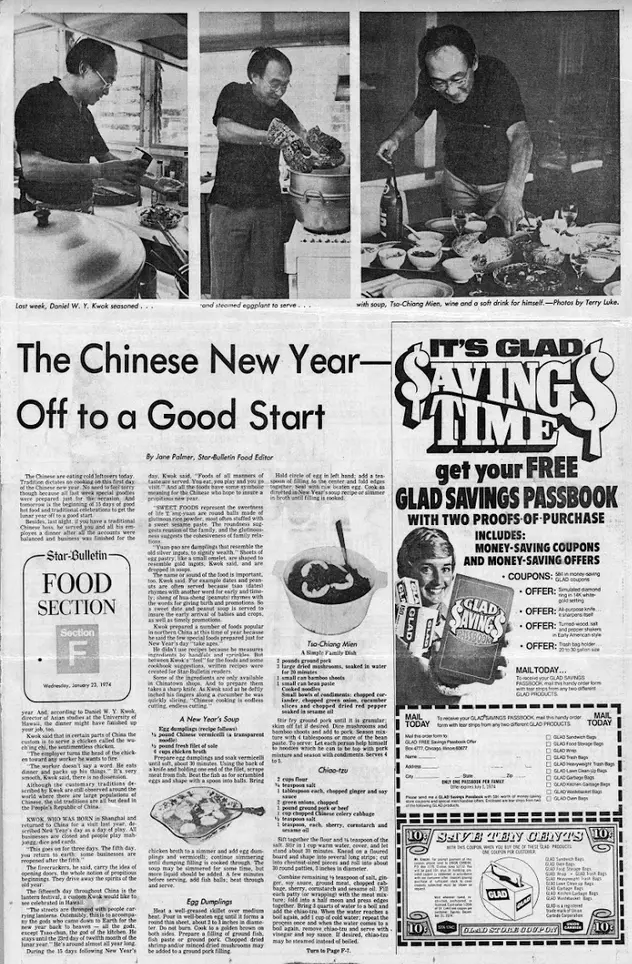
23 January 1974
in the Honolulu Star-Bulletin
The name or sound of food is important, too, Kwok said. For example dates and peanuts are often served because tsao (dates) rhymes with another word for early and timely; sheng of hua-sheng (peanuts) rhymes with the words for giving birth and promotions. So a sweet date and peanut soup is served to insure the early arrival of babies and crops, as well as timely promotions.
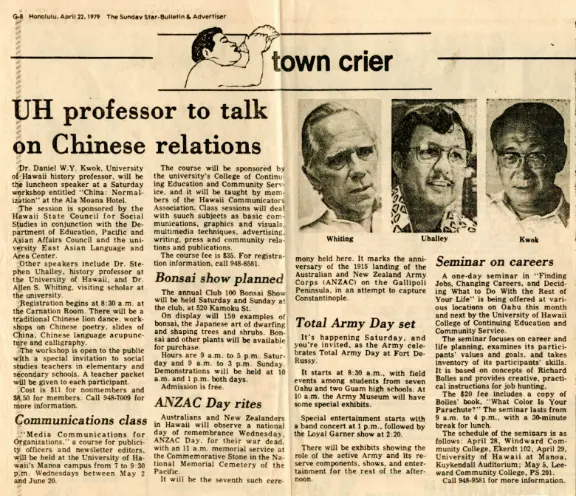
22 April 1979
in the Sunday Star-Bulletin & Advertiser
Dr. Daniel W. Y. Kwok, University of Hawaii history professor, will be the luncheon speaker at a Saturday workshop entitled “China: Normalization” at the Ala Moana Hotel. [. . .] Other speakers include Dr. Stephen Uhalley, history professor at the University of Hawaii, and Dr. Allen S. Whiting, visiting scholar at the university.
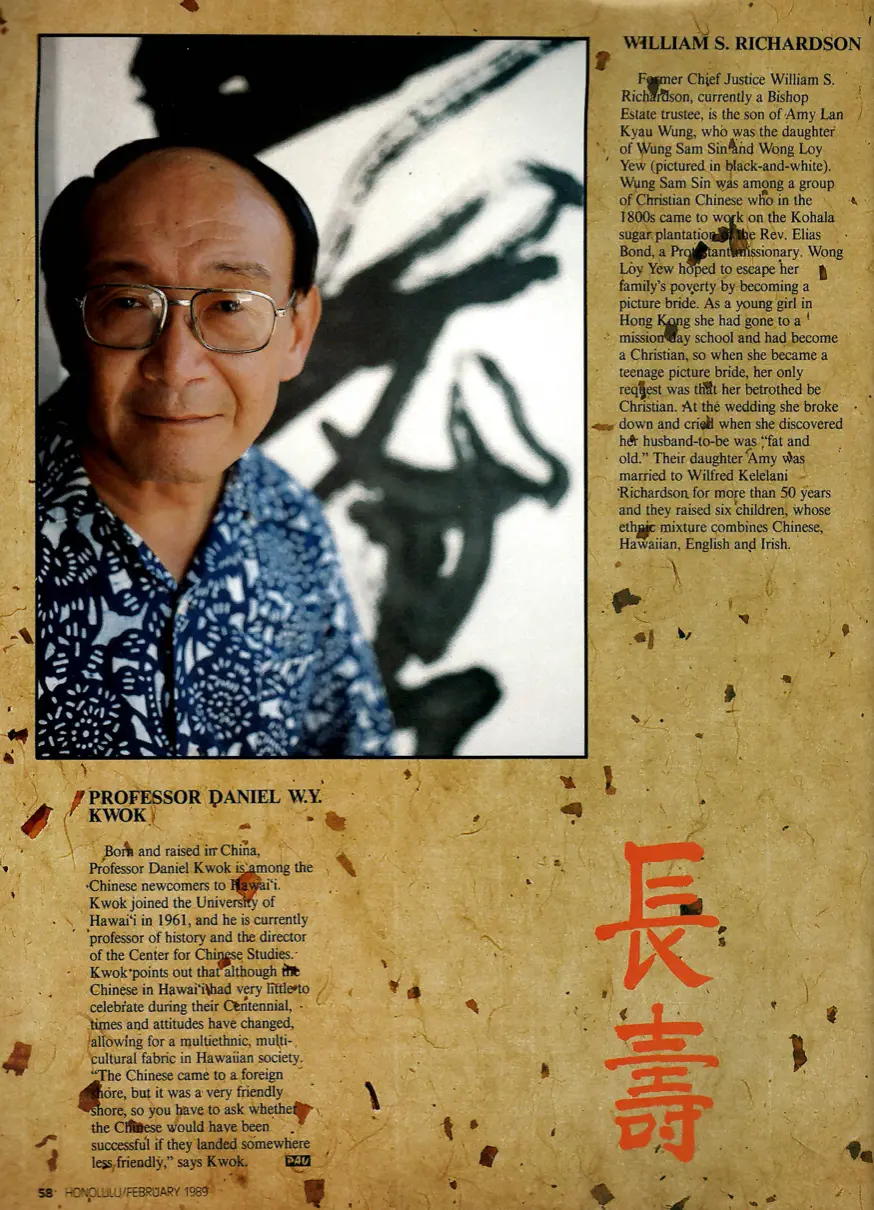
February 1989
in the Honolulu Magazine
Kwok points out that althought the Chinese in Hawaiʻi had very little to celebrate during the Centennial, times and attitudes have changed, allowing for a mutliethnic, multicultural fabric in Hawaiian society. “The Chinese came to a foreign shore, but it was a very friendly shore, so you have to ask whether the Chinese would have been successful if they landed somewhere less friendly,” says Kwok.
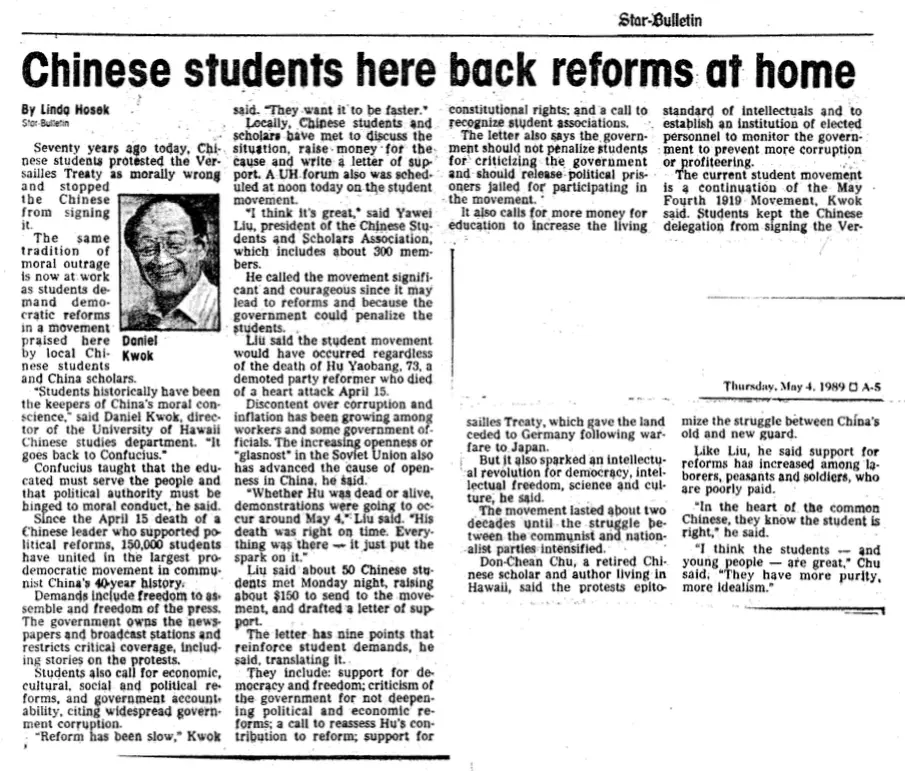
4 May 1989
in the Honolulu Star-Bulletin
“Students historically have been the keepers of China’s moral conscience,” said Daniel Kwok, director of the University of Hawaii Chinese studies department. “It goes back to Confucius.”
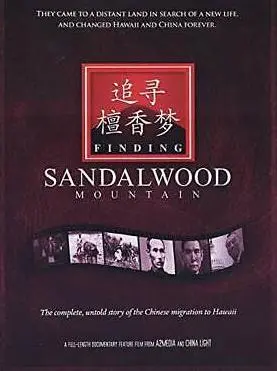
2008
Interview
From PBS Hawaii: “Finding Sandalwood Mountain” is a documentary digital feature film shot in Hawaii and China. Five years in the making, it is the only film to date that chronicles the complete unabridged and untold story of the Chinese migrants who came to Hawaii. This film portrays the legacy, providence, history and accomplishments made by Hawaii’s Chinese Families.
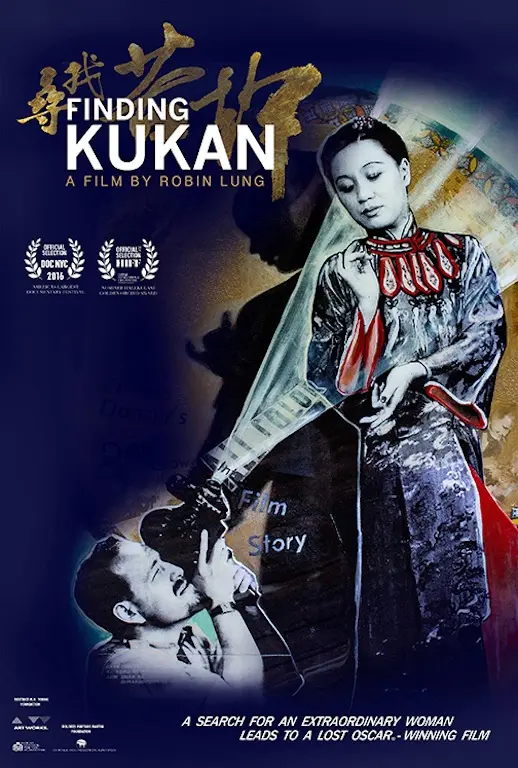
2016
Interview
From the viewer’s guide: KUKAN, a landmark color film that revealed atrocities of World War II China to audiences around the world, was the first ever American feature documentary to receive an Academy Award® in 1942. But for decades it was considered a lost film with no copy known to exist. When Robin Lung discovers a badly damaged film print of the “lost” KUKAN, she pieces together the inspirational tale of the two renegades behind the making of it–Chinese American playwright and activist Li Ling-Ai and cameraman Rey Scott.